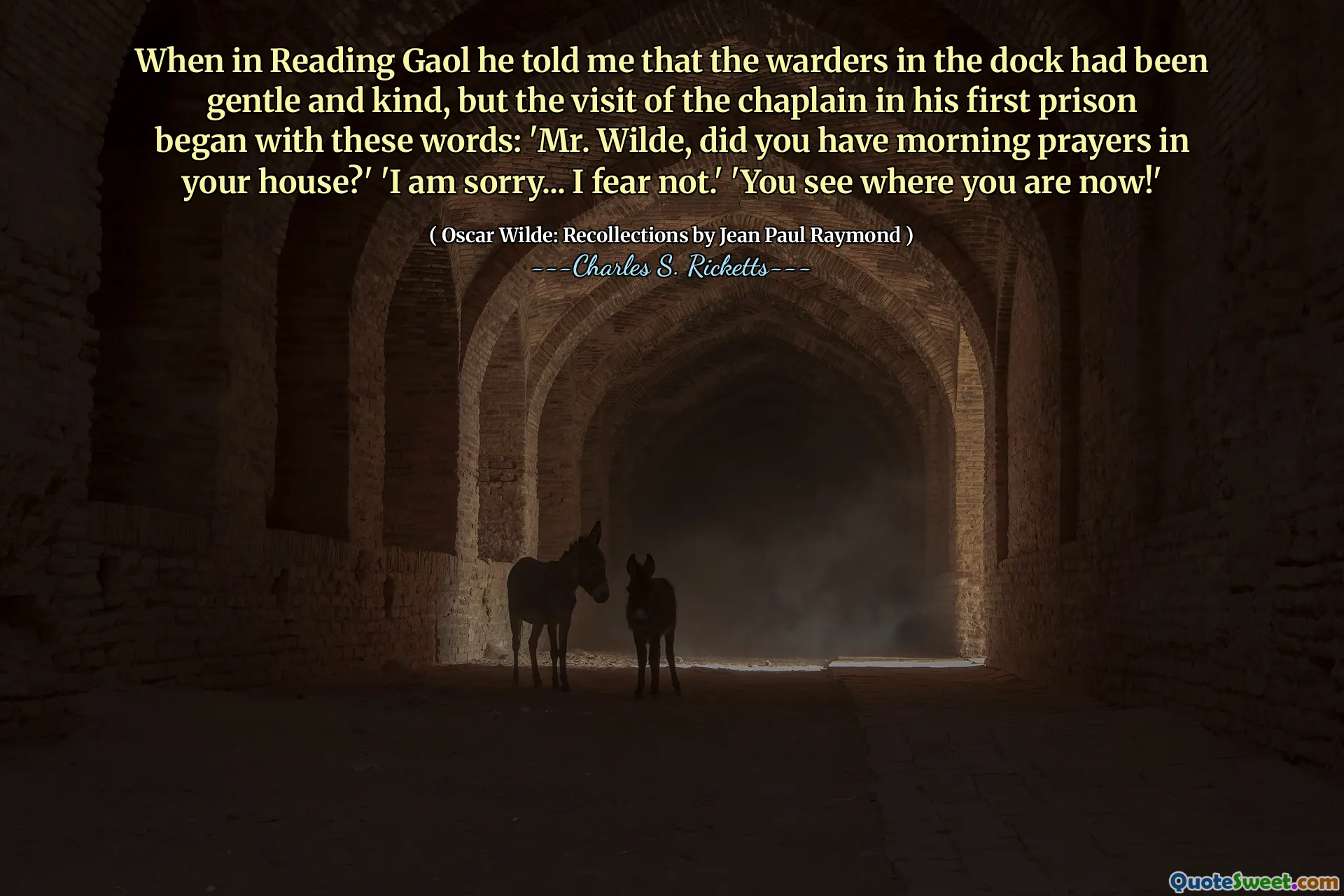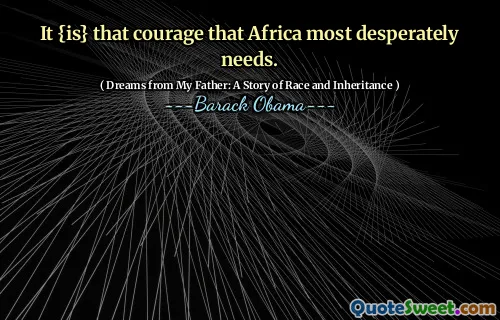
When in Reading Gaol he told me that the warders in the dock had been gentle and kind, but the visit of the chaplain in his first prison began with these words: 'Mr. Wilde, did you have morning prayers in your house?' 'I am sorry... I fear not.' 'You see where you are now!'
This quote vividly captures the stark contrast between the freedom of personal religious practice and the rigid institutional expectations within the prison system. Oscar Wilde, known for his wit and keen observations of society, subtly criticizes the way institutions impose their moral standards without considering individual circumstances. The chaplain’s question, simple yet pointed, highlights the disconnect: Wilde's personal religious habits were absent not due to a lack of faith but perhaps because of circumstances or personal choice. Yet, the chaplain's response implicitly conveys moral judgment, suggesting that Wilde's current situation is a consequence of his earlier neglect of traditional religious duties. This exchange underscores a broader commentary on societal and institutional rigidity—how they often fail to recognize individual nuances and instead pass judgment based solely on outward observance. Wilde’s remark 'You see where you are now!' succinctly emphasizes the outcome of such perceived failings, pointing to the punitive and often unforgiving nature of societal judgment. The quote invites reflection on justice, morality, and the human condition—challenging the reader to consider how societal institutions define morality and the extent to which personal beliefs and circumstances are acknowledged in their judgments. Wilde's experience resonates as a critique of a system that values outward compliance over genuine understanding, reminding us of the importance of compassion, contextual awareness, and acknowledgment of human complexity in moral evaluations.





